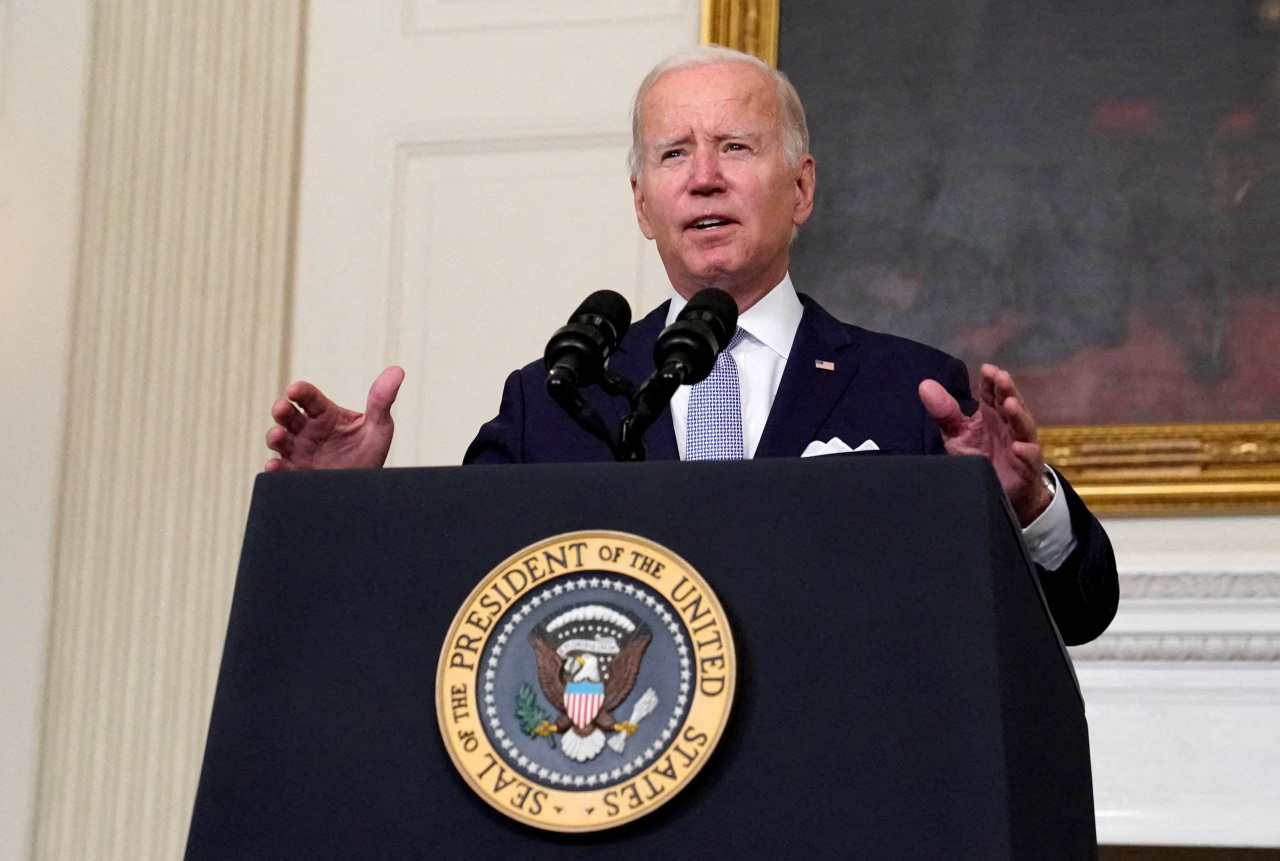Market Now
Korean battery makers keep close tabs on US Inflation Reduction Act
 |
US President Joe Biden gestures as he delivers remarks on the Inflation Reduction Act of 2022 at the White House in Washington, US, in July. (Reuters-Yonhap) |
South Korean lithium-ion battery cell makers are expected to be beneficiaries once the Inflation Reduction Act comes into force in the United States, as the bill is likely to induce US electric vehicle makers to cut their reliance on Chinese battery components.
But at the same time, Korean battery makers are now pressured to preemptively diversify their import sources of key materials out of China, as the new US bill is apparently aimed at countering China’s influence on the EV supply chain.
Immediately, Korean battery cell makers including LG Energy Solution, SK On and Samsung SDI are likely to enjoy a windfall, as the new bill effectively puts a lid on Chinese rivals’ supply of electric battery components to major US carmakers like Ford, General Motors and Tesla.
In particular, the bill casts a gloomy outlook for China-based battery giant CATL’s plan to build a factory in the US to supply batteries to Tesla, which was put on hold the previous week following US House of Representatives Speaker Nancy Pelosi’s visit to Taiwan, Korea and Japan.
Under the Inflation Reduction Act, a $7,500 consumer tax credit per EV purchase will be available starting in 2023, if the final assembly of the eco-friendly car occurs within North America and no critical minerals were sourced from countries like China.
The tax credit will be split into half if an EV maker meets either of the two conditions, beginning in 2023. At least 40 percent of the battery metal value must be extracted or processed in the US or in partner countries that have signed a free trade agreement with the US; and at least 50 percent of the battery components must be manufactured in North America.
The proportion prescribed in the new bill will increase gradually. By 2028, battery metal value extracted or processed within the US or its trading partners must account for at least 80 percent. By 2030, the entire battery must be produced within North America.
Given that Korean battery makers have already secured a combined production capacity of 380 gigawatt-hours within North America, which could in theory power 4.2 million EVs each year, analysts say Korean battery firms are the easiest alternatives for carmakers to meet the new requirements.
The new bill, coupled with the US-Mexico-Canada Agreement that requires at least 75 percent of auto content to be made in North America, “will trigger an upshot in demand of Korea-made battery cells among US automakers, thanks to their localized battery value chain,” noted Song Sun-jae, an analyst at Hana Securities.
But in the long run, Korean firms are at a crossroads over their use of Chinese materials
Neither of the three companies have disclosed their dependence on Chinese materials, but government data has indicated that over 90 percent of their nickel, cobalt and manganese precursors used as battery cathode materials were imported from China last year.
Choosing to reduce their reliance on China, however, could result in China‘s decision to ostracize Korean firms in their EV supply chain, noted Jay Kim of Sangsangin Investment & Securities.
“As the November midterm election in the US draws to a close, the Inflation Reduction Act, along with the CHIPS and Science Act, is an economic policy representing the US aimed at securing its competitiveness and boosting domestic demand,” Kim noted.
On Sunday, US Senate passed the Democrats’ $430 billion Inflation Reduction Act by a vote of 51-50.
The new bill, which includes a spending package of $369 billion aimed at securing energy security and addressing climate change, is also excluding local EV makers from financial incentives should they source materials or components from “foreign entities of concern” by the US, including China and Russia.
The news comes against the background of a growing dominance of Chinese battery makers.
All three Korean firms saw growth in terms of batteries supplied to EVs in the first half of this year, according to market intelligence SNE Research.
LG Energy Solution’s production capacity grew 6.9 percent, while that of SK On and Samsung SDI jumped 114.4 percent and 50.6 percent, respectively, according to the estimate. On the other hand, their growth was largely outpaced by Chinese rivals such as CATL and BYD, as the market share of LG Energy Solution and Samsung SDI suffered drops by 9 percentage points and 1 percentage point, respectively.
By Son Ji-hyoung (consnow@heraldcorp.com)







![[Contribution] Preparing for future with strategic public procurement](http://res.heraldm.com/phpwas/restmb_idxmake.php?idx=151&simg=/content/image/2024/11/29/20241129050037_0.jpg)
